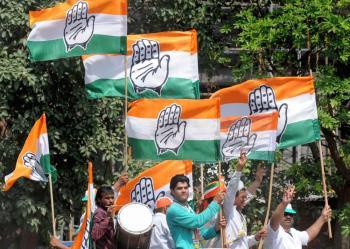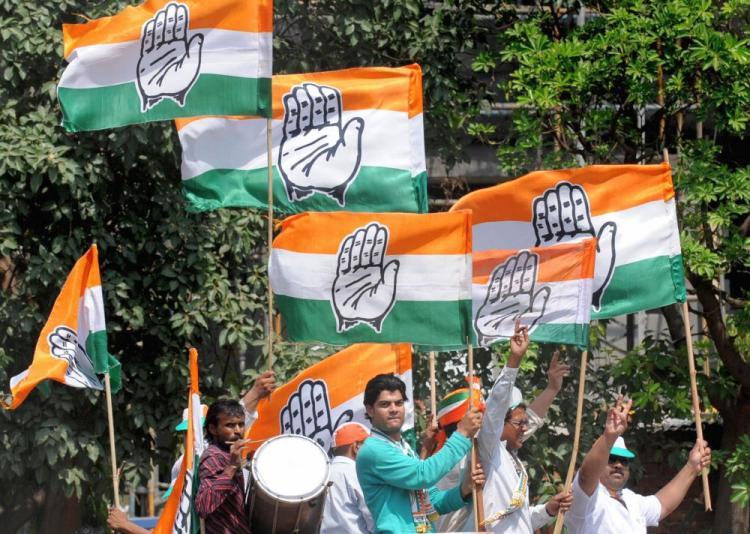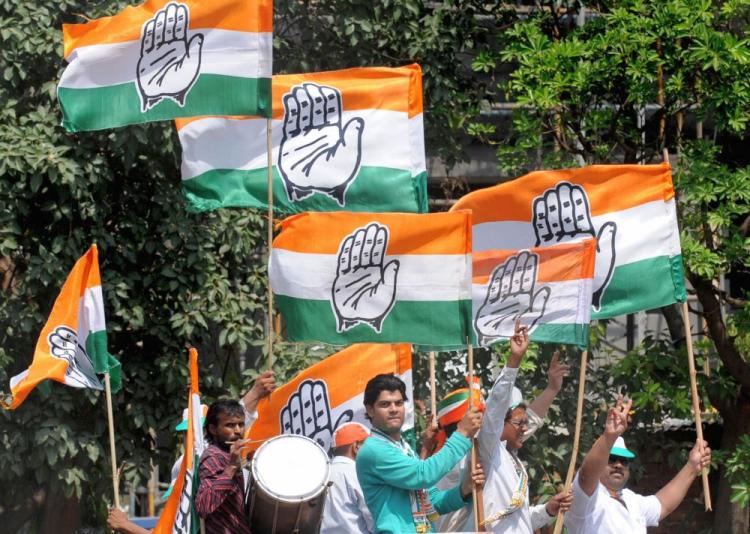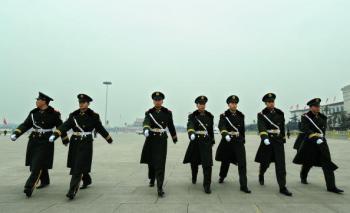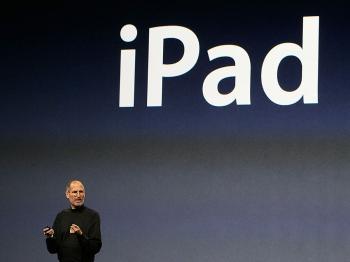The ruling Indian National Congress (INC) Party drubbed its potential rivals and nay-say soothsayers in nationwide elections in India, defying analysts’ expectations of an anti-incumbency wave.
The final election results came out late in the evening of May 17., after two days of vote tallying.
The INC (popularly called the Congress) by itself is set to win 206 seats out of the 543 seats in national Parliament, which is the largest number of seats won by any single party in the last 18 years. The Congress had won 244 seats in the 1991 elections, largely as a result of the sympathy vote that came after the suicide assassination of then Congress leader Rajiv Gandhi by the Tamil Tigers.
In 2004, the Congress had won only 145 seats, but its hodgepodge alliance with regional parties and its then-alliance with the Communist parties ensured it got past the 272-seat majority needed to govern the world’s most populous democracy.
Congress-Alliance Victory
With its stable allies, the Congress-led coalition, called the United Progressive Alliance (UPA), is heading towards securing more than 260 seats. With just a few more seats needed to secure a 272-seat majority, it looks likely to be able to freely choose a secure alliance with regional parties; alliances that are unlikely to cause political instability in the next 5 years.
The clear lead also gives the Congress a much more stable victory than it had secured 5 years ago. With more than 200 seats just to itself, the Congress has become the more dominant player in the government with a much heavier clout than it held in the aftermath of the 2004 election.
Congress leaders, including Dr. Manmohan Singh and Sonia Gandhi, held a press conference on May 16 in wake of the election results. Indian media reported that Dr. Manmohan Singh will continue as Prime Minister, and the Indian Express quoted Sonia Gandhui’s son Rahul Gandhi as saying, “Manmohan Singh is our PM [Prime Minister], he is UPA’s PM.”
The Business Standard newspaper reported that Dr. Singh would “try to induct Congress General Secretary Rahul Gandhi in the Cabinet.” Rahul Gandhi’s entry into the political arena ensures that the Gandhi family will continue its life as what various media refer to as “India’s first family.”
Among its Congress’ regional allies, the Dravida Munnetra Kazhagam (DMK) won 18 seats in the South-Eastern state of Tamil Nadu, gaining two seats at the expense of rival AIADMK. In West Bengal, the Nationalist Trinamool Congress (also known as the All India Trinamool Congress) won 19 seats, thumping the ruling Communist-party alliance.
When Indian markets open on Monday, the bellwether Mumbai Sensex is expected to post a massive bull rally following the unexpected political stability that is likely in the wake of the election results. The Sensex had dropped to below 8000 in March 2009 following the global credit crisis and the nationwide elections, but had posted a bull run recently that pushed it past its current 12,000 level.
The Congress’ win came at the cost of the Hindu-nationalist Bharitaya Janata Party and its National Democratic Alliance alliance. The Third Front, put together with Communist-Left parties and other regional parties, never took off and performed even more weakly than analysts had predicted.
Communist Parties Suffer Massive Loss
The worst-hit in the 2009 election were the Communist parties. Their alliance, which had secured a total of 62 seats all across India in the 2004 elections, dribbled down to a mere 24 seats in the 2009 elections. The humiliating loss brings into question the future of the Communist parties, which currently rule the states of Kerala and West Bengal.
Of the 24 seats it won, a full 15 seats were won in West Bengal, where the Communist party has ruled virtually unchallenged for the past 50 years. The All India Trinamol Congress (no relation to the Indian National Congress, but its election ally) secured 19 seats in the far Eastern state, bringing the possibility of the Communists being uprooted in their home base in India for the first time in their history.
The massive hemorrhage of the seats that the Communist parties held appears to reflect general public anger at the Communist alliance, which had hedged its political future on trying to derail the nuclear alliance with the United States, and withdrew support in 2008 from the Congress-led coalition after a very public tiff with the ruling alliance. The Congress-led alliance was able to continue with last-minute support from a regional party, and a nuclear alliance was secured with the United States in late 2008, during the last days of the Bush administration.
BJP Loses Ground, Third Front Never Takes Off
The BJP, in the final tally, secured 116 votes, a drop of 22 votes from the previous election held in 2004. Its NDA alliance secured 158 seats.
Lal Krishna Advani, leader of the BJP party during the elections, offered to step down as leader of the opposition after the election results were announced.
The Business Standard newspaper indicated that Ms. Sushma Swaraj, a veteran BJP leader from New Delhi, is one of the likely candidates to replace Mr. Advani as leader of the opposition. Ms. Swaraj, 57, had been in politics for 22 years, and has served as Chief Minister for Delhi as well as Information Minister under the Vajpayee government from 1998 to 2004. In 2008, she broke ranks with senior political leaders and made a clear political and human rights stance by joining the Tibetans who were protesting the Olympic torch as it made its way through New Delhi to Beijing and attended their rally.
The Third Front, composed of the Communist parties and various regional parties, had aimed to challenge the Congress and the BJP at the national level. But it never took off and had the worst showing, winning only around 78 seats.
The poor performance makes the Third Front and its parties almost irrelevant in the national political scenario. From the beginning, the Third Front was hampered by inter-party rivalry and party leaders being unable to agree about political agenda and goals. The two main parties, the Left alliance and the AIADMK, also lost seats from the 2004 election.
